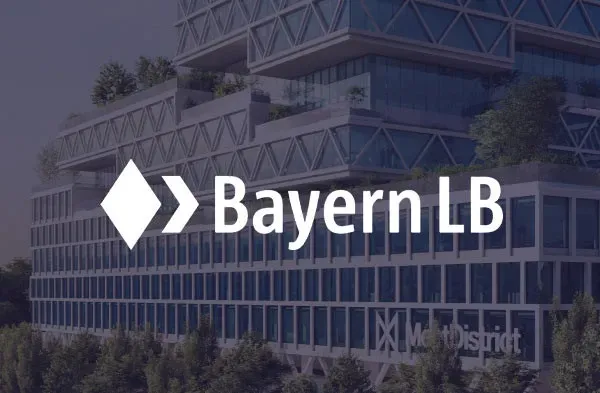BayernLB
BayernLB engaged Focus Group to improve its connectivity, optimise productivity and enhance its working environment.
xs
sm
md
lg
xl
As email-based cyber attacks continue to rise, a robust and future-proof email security solution is critical to any business. Focus Group can provide an industry-leading business email security solution at a competitive price.
Emails are one of the most widely used and essential tools for business communications, with email traffic remaining the primary attack vector for cyber criminals to exploit vulnerabilities and try to gain access to your business network. Business email security is a critical aspect of protecting sensitive information and preventing unauthorised access or data breaches through your communication channels. With the increasing reliance on email for business communication, businesses need robust security measures to safeguard their email systems and prevent potential threats.
Business email security employs various techniques such as email filtering, training, encryption, authentication, and anti-malware scanning to ensure the confidentiality, integrity, and availability of email communications. These solutions help detect and block spam, phishing attempts, malware, and other malicious content that may compromise the security of the organization's email infrastructure. Additionally, Focus Group’s email security solutions can be paired with data loss prevention (DLP) and email archiving to further enhance protection and compliance with regulatory requirements.
Need to discuss your emails security requirements? Our cyber consultants are always on hand to help you protect your business and evolve your email protection to bolster your cyber security posture.
Enquire now

Your employees pose one of the greatest risks to cyber security, but they can also be one of your greatest assets. Email is a common vector for cyberattacks, such as phishing, malware distribution, and social engineering, so educating employees about the various email security risks and teaches them how to identify and respond to potential threats effectively. By raising awareness about common phishing techniques, suspicious email indicators, and best practices for secure email usage, employees become more vigilant and cautious when handling emails, and strengthen your overall business email security. Our team will work closely with your employees to help them learn to recognise and avoid opening on malicious emails, clicking dangerous links or downloading attachments from fraudulent emails.
Focus Group’s employee awareness training emphasises the importance of strong passwords, regular software updates, and the use of encryption for sensitive information, empowering employees with knowledge and skills to help create a human firewall that can detect and prevent email-based attacks, ultimately strengthening the overall email security posture of your business.
Enquire now![]()
Secure your emails in the cloud. Cloud email security solutions use algorithms to filter all emails for spam, malware and unwanted content as well as boasting additional security features such as authentication, data loss protection and fully managed solutions with outsourced service providers – like us!
![]()
By implementing business email security measures, you can maintain a good reputation and reassure clients and customers that you prioritise the security of their data. This provides unparalleled peace of mind and has become a common security feature among businesses serving large volumes of customers.
![]()
Give your employees a go-to rulebook of tips and tricks to navigate the complicated email security climate. This ultimately ensures your business is operating safely to avoid cyber threats and keeps you on track with compliance criteria such as HIPAA, GDPR, and PCI-DSS that require secure storage and transmission of sensitive data.
![]()
Implement robust security measures and prevent human error to safeguard sensitive information. Business email security enforces encryption and authentication protocols, so that email systems can protect against unauthorised access and data breaches. Our team will deploy systems that will ensure that only authorised individuals can access and interact with emails.
![]()
In today's digital landscape, where cyber threats are prevalent and ever evolving, a single email breach or data leak can have severe consequences on your reputation. By implementing robust email security measures, you can protect sensitive information, customer data, and intellectual property from unauthorised access or exposure, maintaining the integrity of communication channels.
![]()
With the increasing reliance on email communication for business operations, it is essential to protect confidential data. Robust business email security measures, ensure that information transmitted via email remains confidential and cannot be intercepted or read. By implementing these security measures, businesses can have peace of mind knowing that their sensitive information is protected.
We offer several business email security solutions that range in cost, features and complexity. Every solution features multi-layered protection, filtering controls and policy-based security such as domain spoofing to protect against whaling and CEO fraud.
Bolster your business email security with spam filtering and stop threats before they arrive in your inbox. Spam filtering is the process of identifying and removing unwanted email messages, also known as spam.
This is typically done using blacklists, whitelists, and algorithms that analyse the content and characteristics of the email to determine whether it is likely to be spam. These techniques may also include machine learning models which can learn to identify spam based on patterns in previous examples of spam and non-spam messages.
The ultimate goal of spam filtering is to separate legitimate emails from spam emails so that only the desired messages are delivered to the recipient's inbox.
Enquire now

Enhance your business email security with email and web filtering involves analysing incoming email messages and website traffic for patterns that indicate a phishing attempt and blocking or flagging those messages for further review.
Anti-phishing software can be built into web browsers and can also be installed on computers to detect and block phishing attempts. However, employee security awareness is also an important aspect of phishing protection, as it aims to teach users how to recognise and avoid phishing attempts.
This can include training on identifying suspicious email messages and websites, as well as providing guidelines on how to handle suspicious emails or messages.
Enquire nowA technique used to protect against malware that is delivered via web links. This security feature works by intercepting clicks on links in web pages, email messages and other forms of online content and then checking the destination of the link in real-time to ensure that it is safe to visit.
When a user clicks on a link, the time-of-click protection software checks the destination URL against a database of known malicious URLs. If the URL is found to be malicious, the link is blocked and the user is warned not to visit the site. If the URL is considered safe, the user is allowed to proceed to the destination site.
This method of business email security is effective in protecting against malware because it checks the link destination at the time the user clicks on it, rather than relying on a pre-existing database of known malicious URLs, allowing the protection feature to detect and block new or previously unknown malware threats.
Time-of-click malware protection is typically implemented as a browser extension or as part of an endpoint security solution and is often used in combination with other security measures such as firewalls, antivirus software and intrusion detection systems to provide multiple layers of defence against malware.
Enquire now

Business email security encryption is the process of converting a plain text email message into coded text (ciphertext) that can only be read by authorised parties.
The goal of email encryption is to protect the privacy and security of email communications by preventing unauthorised access to the message content which is crucial for protecting sensitive information and maintaining the confidentiality of communications, especially when sending and receiving emails that contain personal, financial, or confidential information.
Enquire nowDomain spoofing, also known as email spoofing, is a type of phishing attack that involves forging the sender's address in an email message.
In layman’s terms, the attacker creates an email that appears to come from a legitimate source, such as a bank or a government agency, to trick the recipient into providing sensitive information or clicking on a malicious link.
One of the ways attackers achieve this is by manipulating the "From" field in the email header, making it appear as though the email was sent by a legitimate domain. They can also use a technique called "domain name server (DNS) spoofing" to redirect email traffic from a legitimate domain to a server controlled by the attacker. This way, when the recipient receives an email from a spoofed domain, it appears as though the email was sent by a legitimate organisation.
Our business email security solutions feature domain spoofing protection as standard, ensuring that your business is secure from the start against targeted phishing attacks.
Additionally, using DMARC (Domain-based Message Authentication, Reporting & Conformance) and SPF (Sender Policy Framework) can help to detect and prevent domain spoofing and ensure email communication continues to serve your business with essential communication accessibility.
Enquire now


Email security refers to the measures taken to protect the confidentiality, integrity, and availability of email communications and the information contained in them. It involves using various technologies and practices such as encryption, authentication, anti-malware and email filtering to safeguard against threats.
The goal of email security is to ensure that only the intended recipient can access and read the information contained in the email communication. Without email security, business-wide security and reputation are vulnerable to cyber threats.
Best practices for business email security should include strong passwords, up-to-date software and caution approaching emails and links from unknown senders.
Common features of email security include encryption, authentication, anti-malware and phishing protection.
It is important to take immediate action if you are going to successfully minimise the damage to your business. Notify your IT department, disconnect from the internet and reset your password as soon as possible.
Email security does not guarantee that your business will not be the target of malicious emails, however, it does ensure you have all the preventative measures in place and that your employees are educated on how to minimise the risks associated with cyber-attacks.


